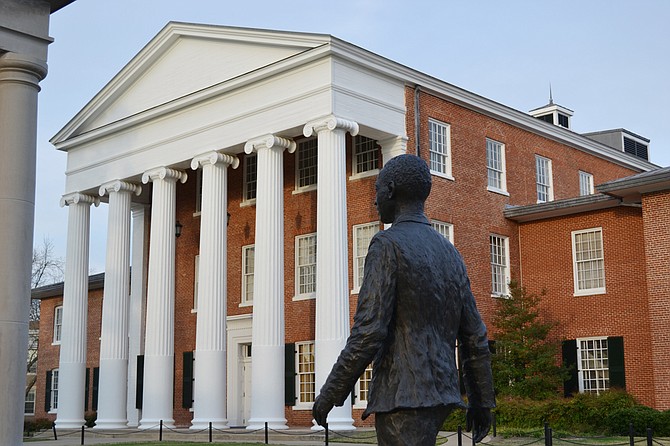As tuition grows more expensive at Mississippi's universities and community colleges, more students are seeking aid to help them pay. But the state's financial aid programs have problems of their own. Photo courtesy Flickr/J.R. Gordon
JACKSON, Miss. (AP) — As tuition grows more expensive at Mississippi's universities and community colleges, more students are seeking aid to help them pay. But the state's financial aid programs have problems of their own. And while aid might be revamped, competing interests might preserve the status quo.
Mississippi has three major undergraduate grant programs: the Mississippi Resident Tuition Assistance Grant (MTAG), the Eminent Scholars Grant, and the Higher Education Legislative Plan for Needy Students (HELP). The three traditionally have had different goals. With low test scores and high school grade requirements, MTAG is available to many students, but excludes those poor enough to qualify for federal Pell Grants, meaning mostly middle-class and above students qualify for $500 in each of their first two years and $1,000 in each of their last two years.
The Eminent Scholars Grant, by contrast, has high qualifications — an ACT score of 29 or above and a high school grade point average of 3.5 or higher to get $2,500 a year. Those best-qualified students generally come from more affluent families
Most generous is the HELP program, which pays full tuition and fees for students whose families earn less than $39,500 a year, if the student earned a 20 or higher on the ACT and GPA of 2.5 or more. The Legislature made it easier to qualify for HELP, and it surged from the smallest of the three grant programs to the largest. In the budget year starting July 1, the state projects it will spend more than $18 million on 3,280 students. By comparison, $12.4 million will go to 23,500 MTAG recipients and $5.8 million will go to 2,700 eminent scholars. The Education Commission of the States, in a May 2017 analysis , found that growth in HELP meant Mississippi's spending on need-based grants rose 221 percent from 2011 to 2015, the third-highest percentage growth among states in that time.
That expansion in HELP, combined with state budget cuts, is pressuring Mississippi's financial aid program. Projecting a $9 million shortfall, lawmakers decided to end students' ability to combine or '"stack" the grants , impacting 3,400 students. Lawmakers also directed officials to check student grades every semester, which means a projected 430 students will lose grants. Those two changes are projected to save $3.6 million. But lawmakers also cut $5.3 million from a series of smaller programs that repay loans for students who go into teaching or health care by barring new awards from any of those programs.
The Education Commission of the States, in a 2016 report on Mississippi's situation , suggests that the state should put more of its effort into making sure students from families earning less than $50,000 a year go to college to increase skill levels across the state. It suggests the eminent scholars and MTAG programs may not be reaching their goal of keeping high-achieving students in the state.
The report also questions whether the loan repayment programs are the best use of the state's money. It suggests streamlining those programs and evaluating whether desired outcomes are met.
Finally, the commission suggests a later application deadline for HELP and allowing part-time students to get grants, instead of just full-time students. Both those suggestions would increase costs.
But those proposals would be hard to implement. Cutting eminent scholars grants might not cause any overall savings, because individual universities could use their own money to compete for high-achieving students. Cutting MTAG could be unpopular among legislators. And increasing access would only increase the financial pressure on the system.
Members of the state financial aid board could debate all those options in coming months. But without more money, the choices will be hard.
Copyright Associated Press. All rights reserved. This material may not be published, broadcast, rewritten, or redistributed.



Comments
Use the comment form below to begin a discussion about this content.
comments powered by Disqus